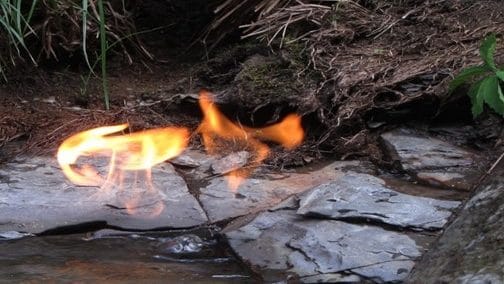Thermogenic methane of geological origin (often termed as “natural gas seeps”) are responsible of the release of ~45 million tonnes of methane per year.
Natural gas seeps also contain substantial amounts of other alkane gases such as ethane and propane, contributing to climate change. Mohammad Farhan Ul- Haque (formerly UEA, now a Group Leader at University of Punjab, Pakistan), Marcela Hernández, Andrew Crombie and Colin Murrell (at UEA) analysed the active microbes involved in the oxidation of alkanes in natural gas seeps in a recent paper in ISME Journal. In this study, samples from two different natural gas seeps from Romania and New York State were incubated in DNA-stable isotope probing experiments with 13C-labelled ethane and propane. The genomes from both original samples and those communities consuming gaseous alkanes and incorporating the 13C-labelled carbon (the active communities) from incubations with both ethane and propane, were then examined. Nearly 100 metagenome-assembled genomes (MAGs) were obtained in these DNA-SIP experiments. 16 MAGs contain genes encoding the soluble di-iron monooxygenase (SDIMO), the enzyme responsible for the oxidation of gases alkanes were retrieved and analysed. In parallel, the authors isolated and characterised three gaseous-alkane degraders from these sites. These bacteria can grow using both ethane and propane as carbon and energy sources and contain SDIMO genes. This study provides important insights into the importance of the SDIMO family of enzymes in the consumption of gaseous alkanes at natural gas seep sites.
For more details, see:


